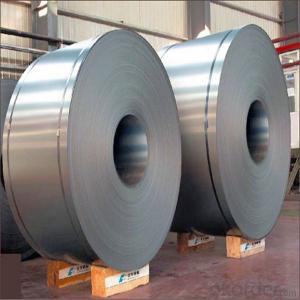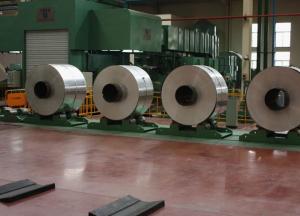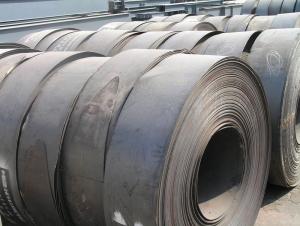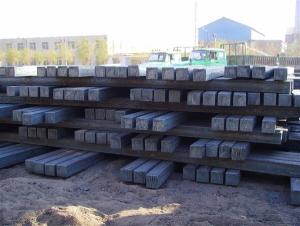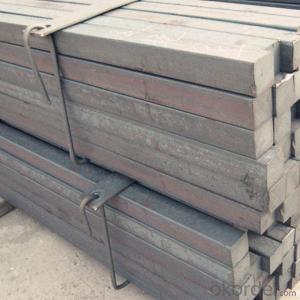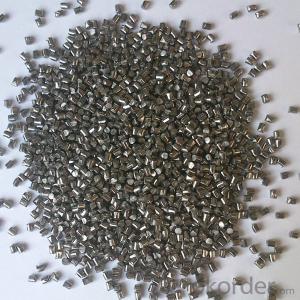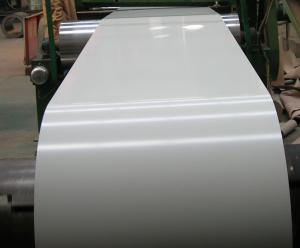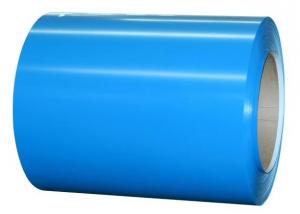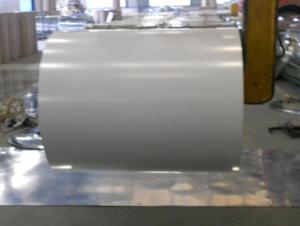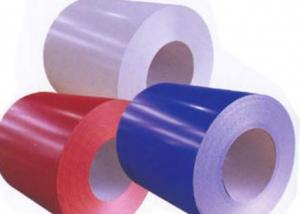Cold Rolled Steel Made in China/China Supplier
- Loading Port:
- China main port
- Payment Terms:
- TT OR LC
- Min Order Qty:
- 20 m.t.
- Supply Capability:
- 50000 m.t./month
OKorder Service Pledge
OKorder Financial Service
You Might Also Like
Item specifice
Prime Quality SPCC Cold Rolled Steel Sheet/Coil
Widely used to appliance,automobile industry or other decoration usage.
Certificate: ISO9001
Packing Details: Wrapped by water proof paper and plastic film.Covered with iron sheet,strapped by steel strips to protect the damage under transportation.
Details please check following format
Brief Introduction
Cold rolled steel coil is steel that has been worked below its recrystallization temperature by passing it between a pair of rollers. Recrystallization temperature is the temperature at which grains in the lattice structure of the metal have been rearranged, leaving it free of strain and deformations. Cold rolled steel coil is pre-treated before being cold rolled with a process known as pickling, which uses strong acids to remove scale and other impurities. The cold rolled steel coil is then passed through rollers to reduce its thickness. Most cold rolling takes place in multiple passes and as the size of the cold rolled steel coil is further reduced, its strength and hardness both increase, but its ductility decreases. After cold rolling, heating the metal up in a process known as annealing can restore some of its ductility. The final cold rolled steel coil may be manufactured in the form of sheets, strips, bars, or other forms.
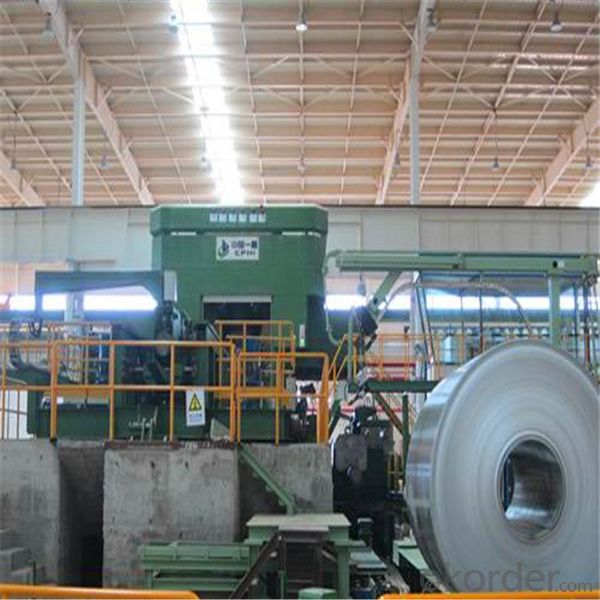
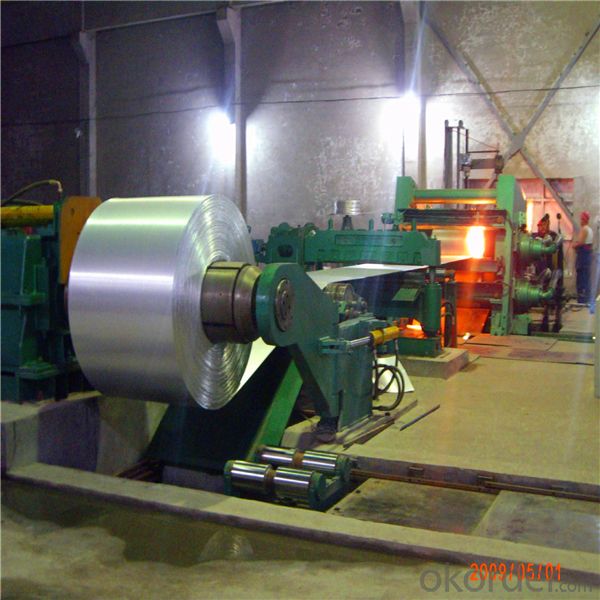
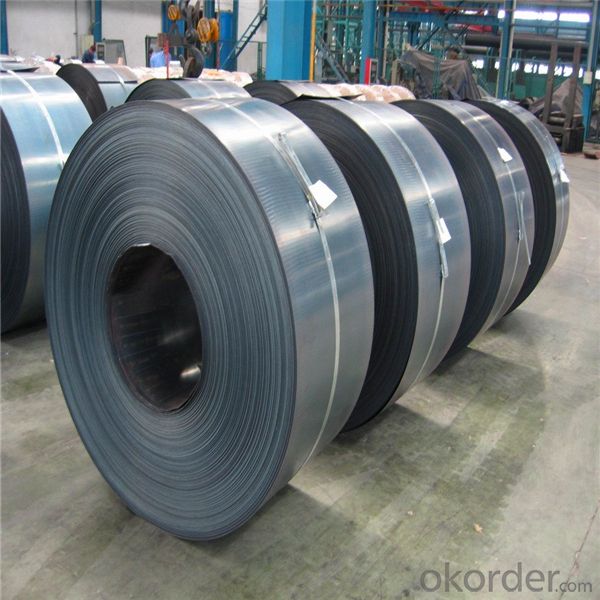
Specification
1. Thickness: 0.4-2.0mm
2. Width: 900-1250mm
3. Inner Diameter: 508mm
4. Weight of Steel Coil: 3-15MT
5. Heat Treatment: Annealed
6. Margin Status: EC & EM
7. Surface Quality: FB&FC
8. Surface Status: SB & SD
9. Surface Treatment: Oiling
Mechanical Properties
1. Yield Strength: ≤320MPa
2. Tensile Strength: ≤370MPa
3. Elongation (L=50mm, b=25mm) When:
(1) Nominal Thickness<0.25mm: 30%
(2) Nominal Thickness 0.25mm-<0.40: 32%
(3) Nominal Thickness 0.40-<0.60mm: 34%
(4) Nominal Thickness 0.60-<1.0mm: 36%
(5) Nominal Thickness 1.0-<1.6mm: 37%
(6) Nominal Thickness >1.6mm: 38%
Standard: AISI, ASTM, BS, DIN, GB, JISGrade: DX51D, SGCC, ENG10142, ASTM A653Thickness: 0.1mm-3.0mm
Place of Origin: Hebei China (Mainland)Brand Name: YuandaModel Number:
Type: Steel CoilTechnique: Cold RolledSurface Treatment: Other
Application: Flange PlateSpecial Use: High-strength Steel PlateWidth: 700mm-2000mm
Length: As required
Packaging & Delivery
- Q:How are steel plates used in the fabrication of storage tanks?
- Steel plates are used in the fabrication of storage tanks to provide structural support and maintain the integrity of the tank. These plates are welded together to form the tank's shell and are strong enough to withstand the pressure and weight of the stored materials. Additionally, steel plates can be coated or lined to prevent corrosion and ensure the longevity of the tank.
- Q:How is steel used in the manufacturing of agricultural machinery?
- Steel is used in the manufacturing of agricultural machinery due to its exceptional strength, durability, and versatility. It is utilized for various components such as frames, axles, and blades, providing robustness and resistance to heavy loads, impacts, and harsh environmental conditions. Additionally, steel's malleability allows for precise shaping and customization, enabling manufacturers to create complex parts required for specific agricultural tasks. Overall, steel plays a vital role in ensuring the reliability and longevity of agricultural machinery, contributing significantly to the productivity and efficiency of farming operations.
- Q:What are the safety precautions to be followed when handling steel products?
- When handling steel products, there are several safety precautions that should be followed. Firstly, it is important to wear appropriate personal protective equipment (PPE) such as gloves, safety glasses, and steel-toed boots to protect against cuts, abrasions, and impact injuries. Additionally, workers should be trained on proper lifting techniques to prevent strains and back injuries when handling heavy steel objects. It is crucial to maintain a clean and organized work area to prevent tripping hazards and to properly store steel products to prevent them from falling or causing injuries. Finally, regular inspections and maintenance of equipment and tools should be conducted to ensure they are in proper working condition, reducing the risk of accidents.
- Q:What are the different methods of testing the quality of steel products?
- There are several methods of testing the quality of steel products, including destructive and non-destructive testing methods. Destructive testing involves subjecting the steel to extreme conditions, such as tension, compression, or bending, to determine its mechanical properties and strength. Non-destructive testing methods include visual inspection, ultrasonic testing, magnetic particle testing, and radiographic testing, which allow for the detection of defects or irregularities in the steel without causing any damage. These testing methods help ensure that steel products meet the required quality standards and are fit for their intended applications.
- Q:What are the common types of steel products used in the marine industry?
- Common types of steel products used in the marine industry include shipbuilding plates, marine grade stainless steel, naval steel, and marine structural sections such as beams, angles, and channels.
- Q:What are the different types of steel sheets and their uses?
- There are several types of steel sheets available, each with its own unique properties and uses. Some common types include hot rolled steel sheets, cold rolled steel sheets, galvanized steel sheets, and stainless steel sheets. Hot rolled steel sheets are made by rolling heated steel through large rollers, resulting in a rough surface finish. They are commonly used in applications where strength and durability are important, such as construction, automotive manufacturing, and shipbuilding. Cold rolled steel sheets are produced by further processing hot rolled steel, which results in a smoother and more refined surface finish. They are used in applications that require precise dimensions and a higher level of surface quality, such as appliances, furniture, and automotive parts. Galvanized steel sheets are coated with a layer of zinc to protect against corrosion. They are commonly used in outdoor applications, such as roofing, fencing, and electrical enclosures. Stainless steel sheets are highly resistant to corrosion and staining, making them suitable for a wide range of applications. They are commonly used in industries like food processing, chemical processing, and medical equipment manufacturing. Overall, the choice of steel sheet depends on the specific requirements of the application, including factors like strength, corrosion resistance, surface finish, and cost.
- Q:What are the common types of steel products used in the chemical industry?
- Some common types of steel products used in the chemical industry include stainless steel, carbon steel, and alloy steel. These materials are chosen for their corrosion resistance, durability, and ability to withstand high temperatures and pressures. Stainless steel is particularly popular due to its superior resistance to chemical corrosion, while carbon steel is often used for less corrosive applications. Alloy steel, on the other hand, offers enhanced strength and performance characteristics through the addition of various alloying elements.
- Q:How is steel different from iron?
- Steel is different from iron primarily because of its carbon content. While iron is a pure metal with a relatively low carbon content, steel is an alloy of iron and carbon, usually with a carbon content ranging from 0.2% to 2.1%. This carbon content gives steel its enhanced strength, hardness, and durability compared to iron. Steel also possesses better corrosion resistance and can be easily manipulated into various shapes and forms, making it more versatile for a wide range of applications.
- Q:What are the different types of steel coils and their applications?
- There are various types of steel coils available, including hot-rolled, cold-rolled, galvanized, and stainless steel coils. Hot-rolled coils are commonly used in construction, automotive, and machinery industries due to their strength and flexibility. Cold-rolled coils are used for applications requiring precise dimensions and a smooth surface finish, such as in the manufacturing of appliances and furniture. Galvanized coils are coated with a layer of zinc, making them corrosion-resistant and suitable for outdoor applications. Stainless steel coils are highly resistant to corrosion and heat, making them ideal for use in the food processing, medical, and chemical industries.
- Q:How is steel wire used in the manufacturing of springs?
- Steel wire is commonly used in the manufacturing of springs due to its high tensile strength and durability. It is formed into a helical shape, creating a coiled spring that can absorb and store mechanical energy. The wire's flexibility and resilience allow springs to compress and expand repeatedly without losing their shape or functionality. This makes steel wire an ideal material for various applications, including automotive suspensions, furniture, mattresses, and industrial machinery.
1. Manufacturer Overview |
|
|---|---|
| Location | |
| Year Established | |
| Annual Output Value | |
| Main Markets | |
| Company Certifications | |
2. Manufacturer Certificates |
|
|---|---|
| a) Certification Name | |
| Range | |
| Reference | |
| Validity Period | |
3. Manufacturer Capability |
|
|---|---|
| a)Trade Capacity | |
| Nearest Port | |
| Export Percentage | |
| No.of Employees in Trade Department | |
| Language Spoken: | |
| b)Factory Information | |
| Factory Size: | |
| No. of Production Lines | |
| Contract Manufacturing | |
| Product Price Range | |
Send your message to us
Cold Rolled Steel Made in China/China Supplier
- Loading Port:
- China main port
- Payment Terms:
- TT OR LC
- Min Order Qty:
- 20 m.t.
- Supply Capability:
- 50000 m.t./month
OKorder Service Pledge
OKorder Financial Service
Similar products
New products
Hot products
Related keywords
